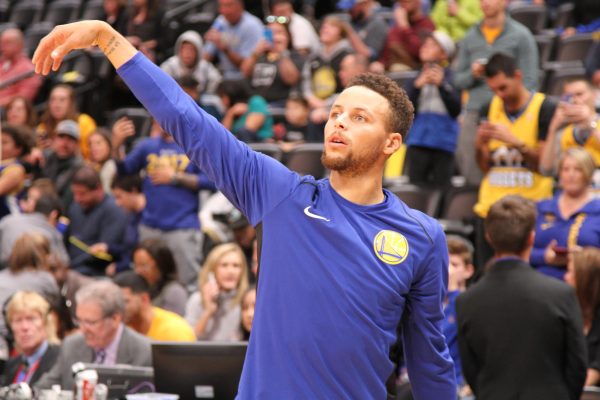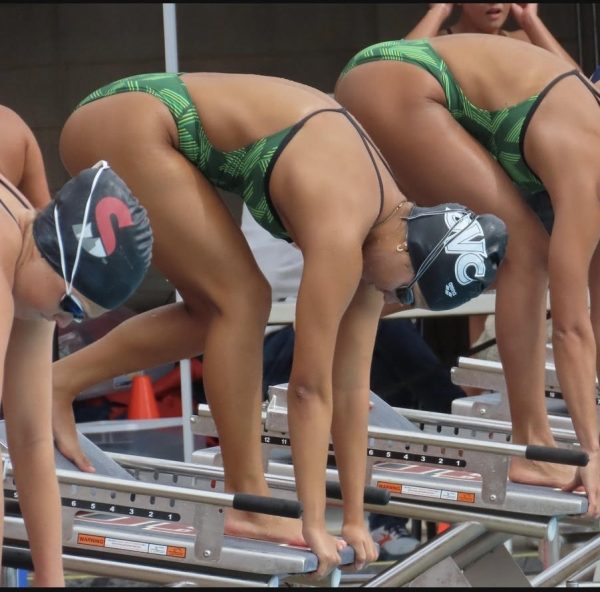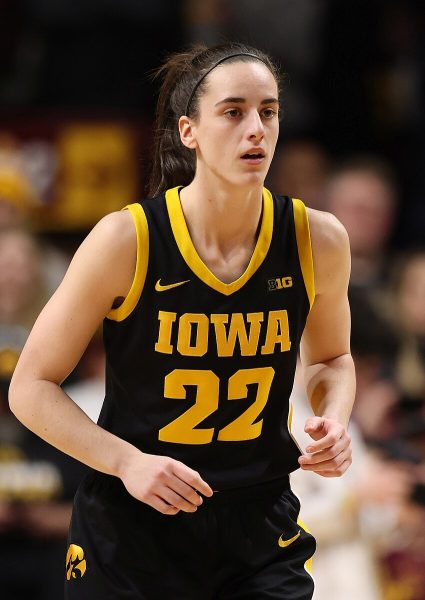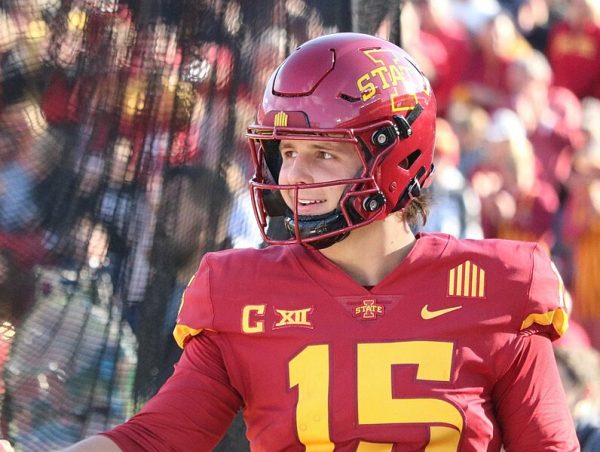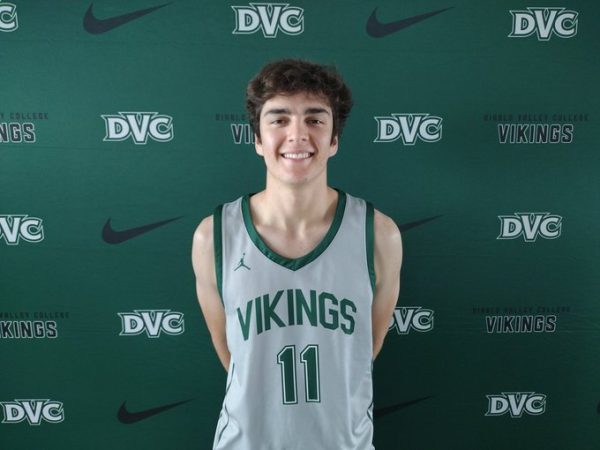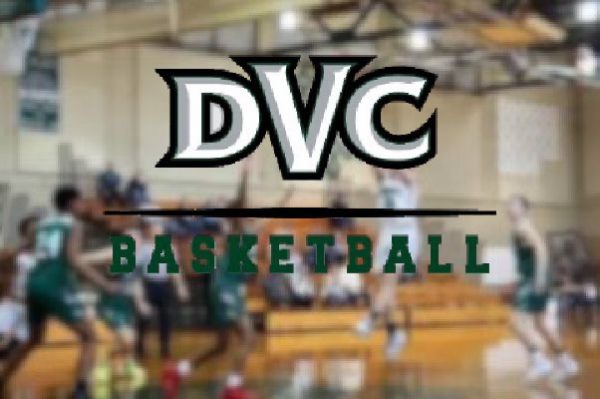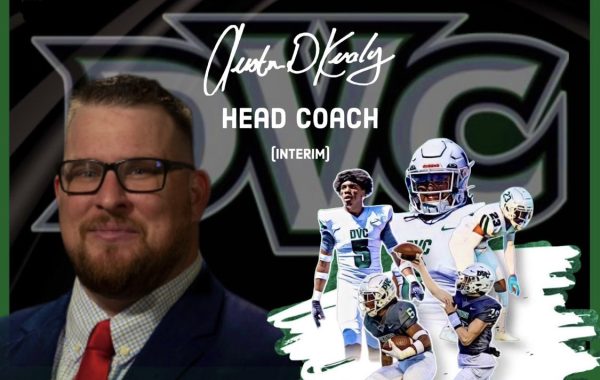Sponsorships for college athletes: DVC coaches weigh in
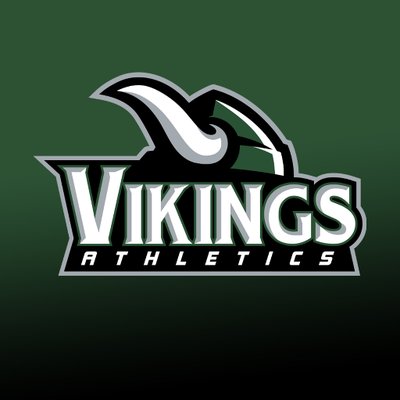
Coaches at Diablo Valley College express their thoughts on the newest bill that would allow college athletes to receive sponsorships. (Photo courtesy of DVC Athletics).
November 6, 2019
Last month, Gov. Gavin Newsom of California signed the first bill to allow college athletes to receive compensation for sponsorship opportunities. The legislation only applies to universities and not community colleges like Diablo Valley College.
According to the Sacramento Bee, the bill, also known as the “Fair to Play Act”, would enable student athletes to make money “as a result of the student’s name, image, or likeness.” Universities would also be barred from taking away scholarships from athletes.
In response to the bill, the National Collegiate Athletic Association warned that it would ban participating universities in championship games because it would “distort national competition.”
Steve Coccimiglio, head coach of DVC’s men’s basketball team, supported the bill’s approval because it lets football and basketball players receive payment just like college hockey and baseball players do when they transfer to the minor leagues.
He explained that baseball and hockey have their own minor league systems whereas the NFL and NBA do not.
“Those are the two sports that this bill is about,” said Coccimiglio. “Although basketball and football athletes are given scholarships and paid tuition, those two sports don’t have the same opportunity to go straight to the minor leagues from high school and get paid.”
In addition, coaches and universities profit by making hundreds of thousands of dollars based off athletes’ performances. Yet, major college football and basketball universities are responsible for funding all the sports in every NCAA institution. That’s why athletes should be given financial gain when others gain from their image, according to Coccimiglio.
Coach Dennis Luquet, head of the men’s baseball team at DVC, was more hesitant about the bill’s potential impact and affirmed that it might drain sports programs of money.
“I think it’s great for skilled people from an athlete’s point of view,” said Luquet. “I’m against it, though, because a lot of athlete programs at the college level work through sponsors. There’s a lot involved: you might have to start charging higher tuition or paying more to go to games.”
According to the Los Angeles Times, the NCAA board warned that this new legislation could give California universities an unfair recruiting advantage, which could prompt the NCAA to ban competition from powerhouses like the University of Southern California or Stanford University. Coccimiglio responded with minimal concern.
“Other states will follow through with the bill,” he said. “Look at the legalization of marijuana, for example. Somebody’s got to lead, so California will lead.”
He confessed that as more athletes profit off their image, more states would follow, which would eventually decrease the unfair advantage Californian institutes may gain.
“I think justice will stand for what is right,” said Coccimiglio. “The NCAA doesn’t even allow athletes on scholarships to work and earn extra money.”
Even as some of Coccimiglio’s athletes transfer into higher-level institutions, he said he doesn’t believe any of them will be recruited to programs that will lead them to the NBA. Thus, he doesn’t consider the bill controversial since NCAA won’t have anything to lose with all of the millions it is generating in revenue.
“Remember, there’s only an elite few who will make it to the major leagues. The only people that are going to benefit from this are first-round draft picks to the NBA and NFL, because those are the two sports that everyone’s watching,” he said.
While the NCAA’s decision to bar athletes from competing may be controversial, Coach Luquet admitted that the organization has a valid reason to do so due to unfair recruiting.
“Because imagine this: if Nike gives you $5 million in California for playing and other states don’t, that’s a pretty good reason for athletes to flock to California,” he said.
However, as more states attempt to push a similar bill through, he said he believed the measure could stop giving California an unfair recruiting advantage as other states start providing sponsorship opportunities for athletes.
Student equity is another factor that Luquet considered. Unlike Coccimiglio, who compared equity to fair pay for those who earn it, Luquet claimed that not all students would get equal pay for their best effort on the field.
“Suppose you’re getting (money) on this one team due to sponsorships while I’m getting nothing,” he said. “This is especially true if I were from an underprivileged background, yet I don’t have extra spending money simply because I’m not good enough.”
His concern is that the bill would blur the distinction between college athletes who work for scholarships and athletes who join the major leagues after school and make lots of money.
Marisol Magallon, a DVC student, supported the bill.
“It’s hard to play sports on top of everything that’s going on in school,” she said. “Not all students come from a background where they can only have their tuition paid for them.”






































































